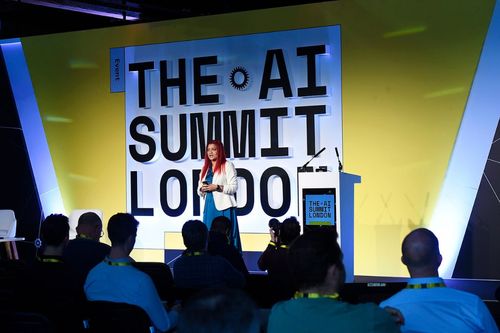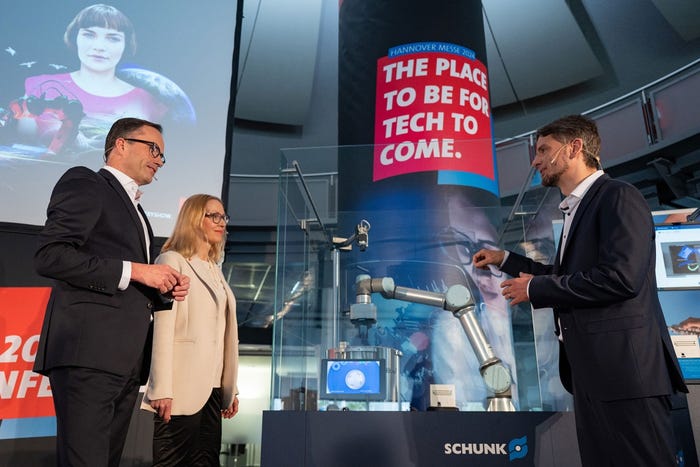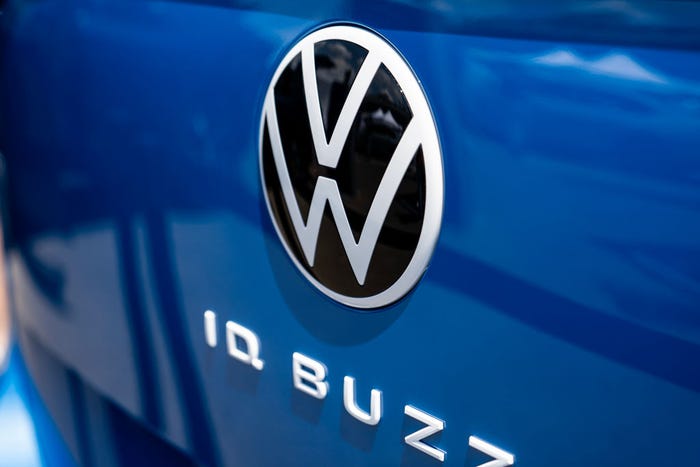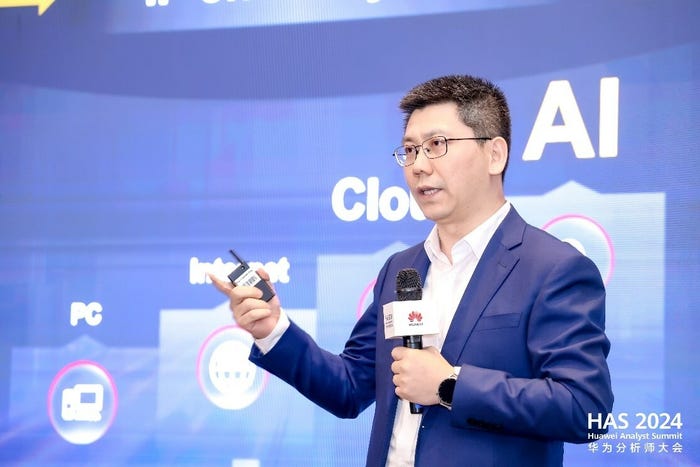Defense, quantum and responsible AI were among the major talking points

AI experts from around the world gathered at the AI Summit London last week, along with high-profile guests including a hologram of Volodymyr Zelenskyy and U.K. business secretary Kwasi Kwarteng. Here are some of the major talking points from the event.
Before the London Summit, responsible AI was already a hot topic across the industry. But the show further highlighted its importance and focus across the AI community.
Nearly every session or keynote referenced using AI in responsible and ethical ways.
Most notably, DeepMind’s chief business officer Colin Murdoch stressed the need to take time and serious thought and not rush to formulate responsible practices.
Should companies apply ethical approaches to developing and deploying AI, larger technological breakthroughs will be on the horizon, Murdoch added.
“AI isn’t hype, it has the potential to change the lives of billions, and it’s happening today,” he said.
Murdoch wasn’t alone in addressing responsible AI – leading speakers from NATO, AstraZeneca, Bank of England, IBM, the Ministry of Defense and Direct Line Group all provided expertise on how to approach and apply ethically sound AI.
A highlight addressing this was the speech from Linda Leopold, head of responsible AI and data at H&M Group. She offered three guideposts that would help brands build a culture to cultivate responsible AI.
Leopold said the key principles underpinning responsible AI are fairness, transparency, collaboration, respecting privacy and security.
She said it is important to build awareness but also have a plan of action. “We have to make people embrace them,” she added.
Defense
The opening of the AI Summit London marked 112 days since Russia invaded Ukraine. As such, defense and security were high among the talking points, with the U.K. choosing to unveil its new national AI defense strategy at the event.
The document details core areas required to maintain momentum for an ever-more technological battlefield.
Several high-profile defense officials spoke at the show to showcase the strategy, including Jeremy Quin, the U.K. minister for defense procurement, Lt. Gen. Tom Copinger-Symes CBE, director of military digitization in the U.K. Strategic Command and Laurence Lee, second permanent secretary of the Ministry of Defense. They all warned that state and non-state actors are increasingly using AI to counter conventional military operations.
NATO’s head of data and AI policy, Nikos Loutas, also said in a speech that future conflicts could be won, lost or heavily impacted by the use of AI technology.
Arguably the most remarkable talking point from the show was the appearance of Volodymyr Zelenskyy in hologram form. An address by the Ukrainian president was broadcast at the AI Summit and other tech events across Europe in which he appealed for help from technologists to start rebuilding his war-ravaged country.
“Our goal is to make Ukraine the freest digital state in the world,” said Zelenskyy to thunderous applause from the audience. “Ukraine is a chance for a global digital revolution − a chance for every technology company and a chance for every visionary to show their value, skills, technologies and ambitions.”
Quantum
The AI Summit was co-located with its sister event, the Quantum Computing Summit.
Highlights of the show included major news announced by business secretary Kwasi Kwarteng that the U.K. government has invested in quantum computing, part of a three-year, $48 billion bid to drive Britain toward becoming a science superpower.
The business secretary described quantum computing as a transformative power, saying: “A lot of the tech that we thought was futuristic and unattainable only a few years ago can become a reality.”
An update on the National Quantum Computing Centre from deputy director Simon Plant was also announced at the show. Plant outlined the NQCC’s main objectives, including plans to build and evaluate prototypes that will lead to the development of an intermediate-scale quantum machine by 2025.
With quantum computing emerging over the horizon, the promises it could bring to the tech world were hot on the lips of attendees and brands. Among those was Fujitsu, which brought its quantum supercomputer to the show.
Expect quantum computing to feature even more strongly at the event’s 2023 iteration.
Education
Finally, skills and education were high among the key talking points across the show. With some of the brightest minds in AI imparting wisdom to attendees, it provided a stellar environment for younger attendees to learn.
But new aspects of the show improved the educational aspect including the Hackathon and Into the Den competition which provided new entrants into the AI world a chance to showcase their skills in front of some of the industry’s largest brands.
The Hackathon tasked university students with demonstrating their understanding of and capacity to work with data analytics across three challenges in just eight hours.
“The end goal is to have these students look at several real, publicly available data sets to come up with a diet based on both nutritional value and minimal environmental cost,” said Kate Harden-England, content producer of AI & IoT at Informa Tech.
Among the Hackathon partners were EasyJet, JP Morgan and Google Developer Student Clubs with students given hands-on mentoring from experts.
Given the increasing lack of digital skills across the world’s workforce, events like the ones showcased at the AI Summit London provided a chance for the next generation to step up to the plate and become part of the future of AI.
This article first appeared in IoT World Today’s sister publication AI Business.
About the Author(s)
You May Also Like





.png?width=300&auto=webp&quality=80&disable=upscale)


.png?width=300&auto=webp&quality=80&disable=upscale)